2. As a working guess we could try to assign dates beginning
with May 16 at heliacal Alcyone. There are
2 * 14 = 28 daylight
openings (vaha) in the double-door (Δ),
so much we can immediately perceive:
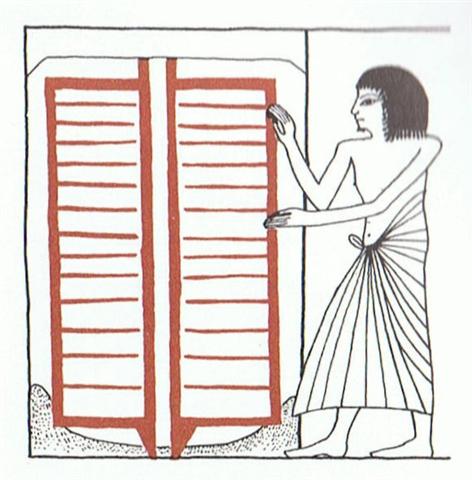
→ 364 / 28 = 13. And in the center there
was a great 29th pillar for division
→ The dark night of the Moon.
Mutu. 1. Cut short, shortened, amputated; at an
end, ceased; anything cut off short; short, brief, quick
(rare). Ua muku ko'u lole, my dress is shortened.
He kanaka wāwae muku, a person with amputated foot.
Huli muku a'ela nā wa'a, the canoes turned sharply. (PPN
mutu.) 2. A measure of length from fingertips of one
hand to the elbow of the other arm, when both arms are extended
to the side. 3. Broken section of a wave or crest. See lala
1. 4. Same as Mumuku, a wind. 5. Thirtieth night of the
moon, when it has entirely disappeared (muku). 6.
Starboard ends of 'iako (outrigger booms), hence
starboard sides of a canoe. Wehewehe.
|
May 16
(501) |
17 |
18 |
19 (139) |
20 (20
weeks) |
 |
 |
 |
 |
 |
|
Ea1-1 |
Ea1-2 |
Ea1-3 |
Ea1-4 |
Ea1-5 |
|
E
hakamata hia tu mai tae vahu ku huku
hia te vaha
ko te tagata - kua mau ki te
hukiga |
|
Va.
1. Hakava, judge, judgement. T Mgv.: akava, to
judge, to pass sentence. Pau.: haava, to judge, to
conjecture. Ma.: whakawa, to charge with crime, to
condemn. Ta.: haava, to judge. 2. Hakava, to
speak. P Mgv.: va, to speak. Mq.: vaa, to chatter
like a magpie. The Marquesan retains more of the primal sense
although the simile is an alien importation. In Samoa va
means a noise, in Tonga va is a laughing noise, in Futuna
va is the disorderly cry of tumult, and probably it is
the initial element of Viti wa-borabora to speak quickly
and confusedly as when scolding. Its only identification in
Tongafiti territory is Hawaii wawa the confused noise of
a tumult ... Churchill. Ta.: va, space between the leaves
in a roof. Sa.: va, space between. Ma.: wa,
interval. Churchill.
Hu. 1. Breaking of wind. T Mgv., uu,
to break wind. Mq., Ta.: hu, id. 2. Whistling of the
wind, to blow, tempest, high wind. P Pau.: huga, a
hurricane. Churchill. Mgv.: hu, to burst, to crackle, to
snap. Ha.: hu, a noise. Churchill.
Ha. 1. Four. 2. To breathe. Hakaha'a,
to flay, to skin. Vanaga. 1. Four. P Mgv., Mq.,
Ta.: ha, id. 2. To yawn, to gape. 3. To heat. 4.
Hakaha, to skin, to flay; unahi hakaha, to scale
fish. Mgv.: akaha, to take to pieces, to take off the
bark or skin, to strip the leaves off sugarcane. 5. Mgv: ha,
sacred, prohibited. Mq.: a, a sacred spot. Sa.: sa,
id. Churchill.
Vaha.
Hollow; opening; space between the fingers (vaha rima);
door cracks (vaha papare). Vahavaha, to fight, to
wrangle, to argue with abusive words. Vanaga. 1. Space, before
T; vaha takitua, perineum. PS Mgv.: vaha, a space,
an open place. Mq.: vaha, separated, not joined. Ta.:
vaha, an opening. Sa.: vasa, space, interval. To.:
vaha, vahaa, id. Fu.: vasa, vāsaà,
id. Niuē: vahā. 2.
Muscle, tendon; vahavaha,
id. Vahahora (vaha
1 - hora 2), spring.
Vahatoga (vaha
1 - toga 1), autumn.
3. Ta.: vahavaha, to
disdain, to dislike. Ha.: wahawaha,
to hate, to dislike. Churchill.Vaha.
Hollow; opening; space between the fingers (vaha
rima); door cracks (vaha papare). Vahavaha, to
fight, to wrangle, to argue with abusive words. Vanaga. 1.
Space, before T; vaha takitua, perineum. PS Mgv.: vaha,
a space, an open place. Mq.: vaha, separated, not joined.
Ta.: vaha, an opening. Sa.: vasa, space, interval.
To.: vaha, vahaa, id. Fu.: vasa, vāsaà,
id. Niuē: vahā. 2.
Muscle, tendon; vahavaha,
id. Vahahora (vaha
1 - hora 2), spring.
Vahatoga (vaha
1 - toga 1), autumn.
3. Ta.: vahavaha, to
disdain, to dislike. Ha.: wahawaha,
to hate, to dislike. Churchill. |
|
May 21
(365 + 141 = 506) |
22 (*62) |
|
'April 24
(506 - 27 = 479) |
25 (*35 = 115 - 80) |
|
"April 10
(100) |
11 (*21) |
|
MARCH 18 (442) |
19 (78) |
 |
 |
|
Ea1-6 |
Ea1-7 |
| rere te toki
rere ki uta |
rere ki te vao |
|
Uta.
Higher up (from the coast, or from another place); i uta era,
further up, up there; ki î te îka i uta, as there are
lots of fish on the beach. Vanaga. 1. Inland, landward;
paepae ki uta, to strand, to run aground; mouku uta,
herbage. 2. To carry; uta mai, to import; hakauta,
to give passage. Campbell.
Vao.
Mgv.: vao, uninhabited land. Ta.: ? [obliterated text]
... of the valleys. Mq.: vao, bottom of a valley. Sa.:
vao, the bush. Ma.: wao, the forest. Churchill.
Honui.
1. Person worthy of respect, person of authority. 2.
Livelihood, heirloom, capital; ka moe koe ki
toou hônui, you must marry to ensure your livelihood (said
to a little girl); he hônui mo taaku poki, this is the
heirloom for my son. Vanaga. Great (hoonui); honui,
chief T.; tagata hoonui, personage; hakahonui, to
praise, to commend. Churchill.
|
|
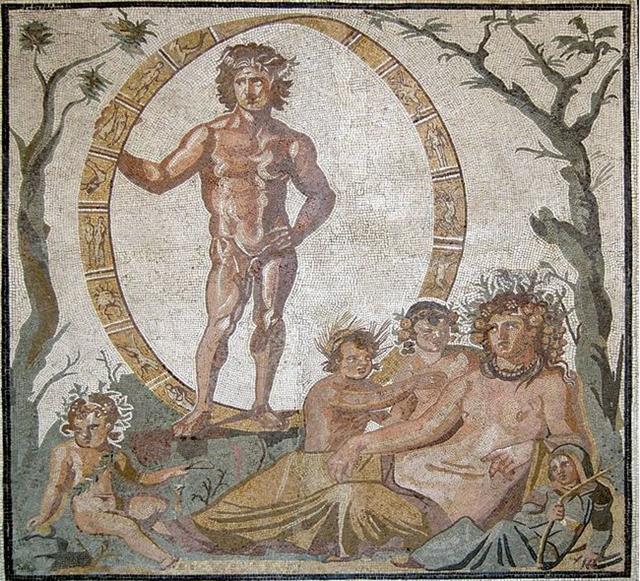
 |
|
Synodic
cycles: |
|
Mercury |
115.88 →
116 = 4 * 29 |
|
Venus |
583.92 → 584 = 3 * 116 + 8 * 29½ |
|
Earth |
π * 116
→
364.24 |
|
Mars |
779.96 → 780 = 584 + 4 * 49 |
|
Jupiter |
398.88
→ 399 = 584 - 185 |
|
Saturn |
378.09 |
|
Uranus |
369.66 → 370 = 584 -
214 |
... He was moreover confronted with
identifications which no European, that is, no average
rational European, could admit. He felt himself humiliated,
though not disagreeably so, at finding that his informant
regarded fire and water as complementary, and not as
opposites. The rays of light and heat draw the water up, and
also cause it to descend again in the form of rain. That is
all to the good. The movement created by this coming and
going is a good thing. By means of the rays the Nummo draws
out, and gives back the life-force. This movement indeed
makes life. The old man realized that he was now at a
critical point. If the Nazarene did not understand this
business of coming and going, he would not understand
anything else. He wanted to say that what made life was not
so much force as the movement of forces. He reverted to the
idea of a universal shuttle service. 'The rays drink up the
little waters of the earth, the shallow pools, making them
rise, and then descend again in rain.' Then, leaving aside
the question of water, he summed up his argument:
'To draw up and then
return what one had drawn - that is the life of the world'
...
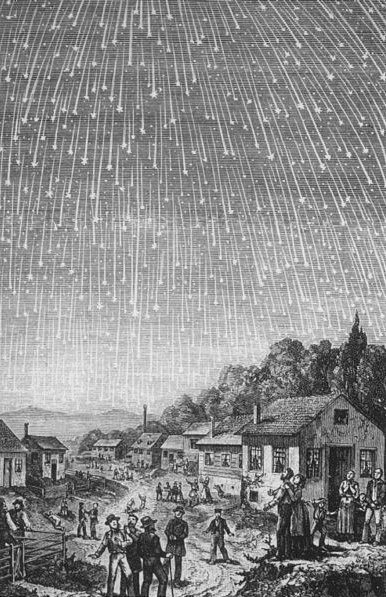
The first ariki motogi was king
Oto Uta. And Metoro appears to
indicate the text is moving inlands (ki uta).
... There is a couple residing in one place
named Kui and Fakataka. After the couple stay
together for a while Fakataka is pregnant. So they go
away because they wish to go to another place - they go. The
canoe goes and goes, the wind roars, the sea churns, the canoe
sinks. Kui expires while Fakataka swims.
Fakataka swims
and swims, reaching another land. She goes there and stays on
the upraised reef in the freshwater pools on the reef, and there
delivers her child, a boy child. She gives him the name
Taetagaloa. When the baby is born a golden plover flies over
and alights upon the reef. (Kua fanau lā te pepe kae
lele mai te tuli oi tū mai i te papa).
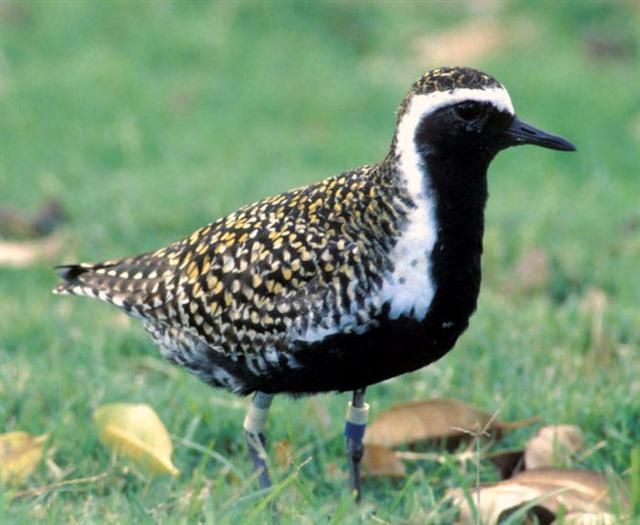
And so the woman thus names various parts of
the child beginning with the name 'the plover' (tuli):
neck (tuliulu), elbow (tulilima), knee (tulivae).
They go inland at the land. The child nursed and tended grows
up, is able to go and play. Each day he now goes off a bit
further away, moving some distance away from the house, and then
returns to their house ...
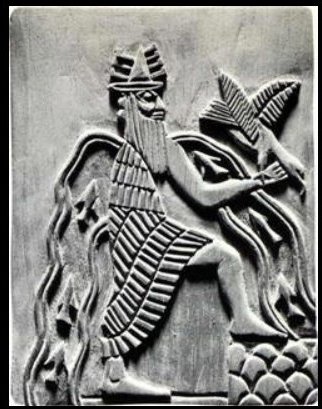
|









